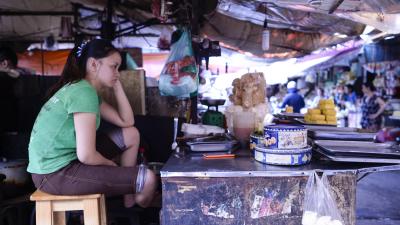
Mental health and psychosocial wellbeing have risen up the development policy agenda in recent years. Despite positive advances, interventions targeting mental health and psychosocial wellbeing remain largely medicalised, often focusing on the individual and neglecting the complex social contexts of young people's lives in the Global South. Interventions often do not engage with existing sources of care, support and resilience within families and communities or take account of socio-cultural understandings of health, illness, loss and death in different places. Similarly, the impacts of wider structural constraints such as poverty, gender and generational inequalities may not be adequately addressed.
This interactive policy workshop, hosted by ODI and the University of Reading, which includes a public panel discussion which will be livestreamed, will bring together policymakers, practitioners and researchers to re-think the social dimensions of young people's psychosocial wellbeing and explore contemporary pressures, ‘troubles’ and changes that young people experience in a range of global contexts.
Presentations and discussions will focus on how globalisation and bereavement affect young people's psychosocial wellbeing and how policy and practice can best support young people, families and communities.
This event also coincides with Children’s Grief Awareness Week UK, designed to raise awareness of bereaved children and young people, which provides an opportunity to explore learning from the Global North.
Speakers include:
Dr. Gina Crivello and Patricia Espinoza, Young Lives, University of Oxford
Lynette Mudekunye, Acting Chief Executive Officer, REPSSI
Alison Penny, Co-ordinator, Childhood Bereavement Network
Dr. Ruth Evans, University of Reading
Dr. Fiona Samuels, ODI
Arij Boureslan-Skelton, Humanitarian Child Protection and Mental Health & Psychosocial Support Advisor, Save the Children UK
Mental health and psychosocial wellbeing have risen up the development policy agenda in recent years. Despite positive advances, interventions targeting mental health and psychosocial wellbeing remain largely medicalised, often focusing on the individual and neglecting the complex social contexts of young people's lives in the Global South. Interventions often do not engage with existing sources of care, support and resilience within families and communities or take account of socio-cultural understandings of health, illness, loss and death in different places. Similarly, the impacts of wider structural constraints such as poverty, gender and generational inequalities may not be adequately addressed.
This interactive policy workshop, hosted by ODI and the University of Reading, which includes a public panel discussion which will be livestreamed, will bring together policymakers, practitioners and researchers to re-think the social dimensions of young people's psychosocial wellbeing and explore contemporary pressures, ‘troubles’ and changes that young people experience in a range of global contexts.
Presentations and discussions will focus on how globalisation and bereavement affect young people's psychosocial wellbeing and how policy and practice can best support young people, families and communities.
This event also coincides with Children’s Grief Awareness Week UK, designed to raise awareness of bereaved children and young people, which provides an opportunity to explore learning from the Global North.
Speakers include:
Dr. Gina Crivello and Patricia Espinoza, Young Lives, University of Oxford
Lynette Mudekunye, Acting Chief Executive Officer, REPSSI
Alison Penny, Co-ordinator, Childhood Bereavement Network
Dr. Ruth Evans, University of Reading
Dr. Fiona Samuels, ODI
Arij Boureslan-Skelton, Humanitarian Child Protection and Mental Health & Psychosocial Support Advisor, Save the Children UK


